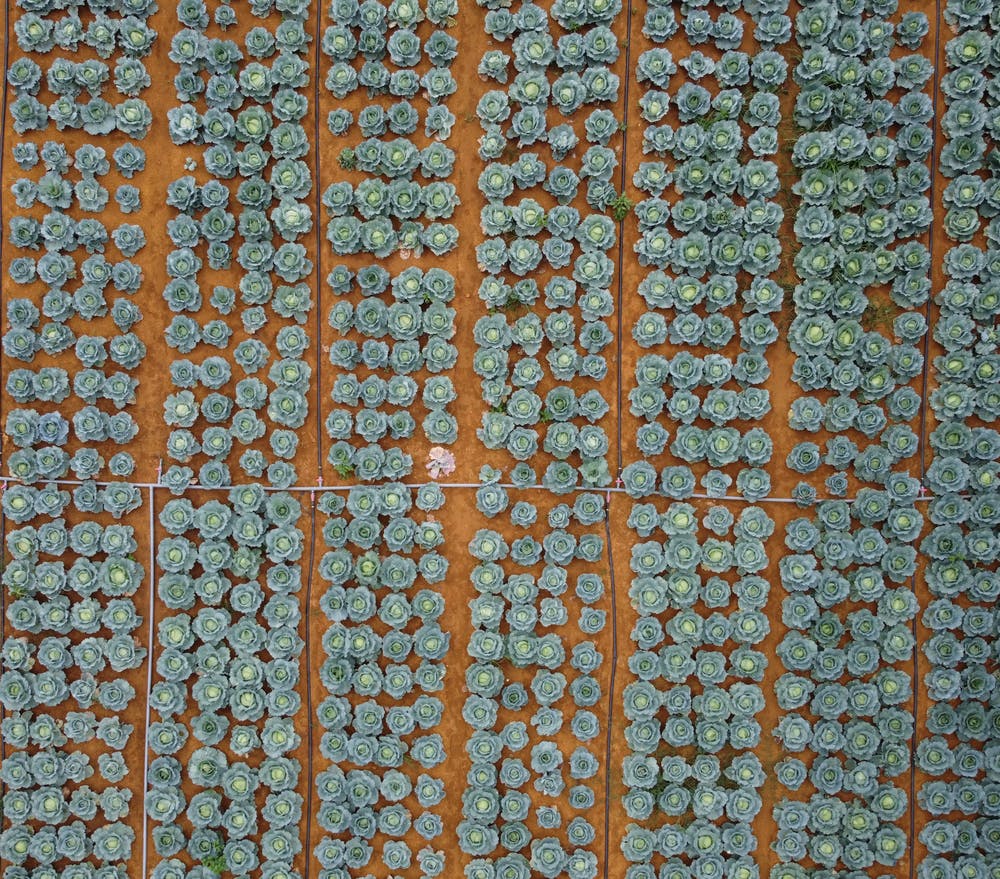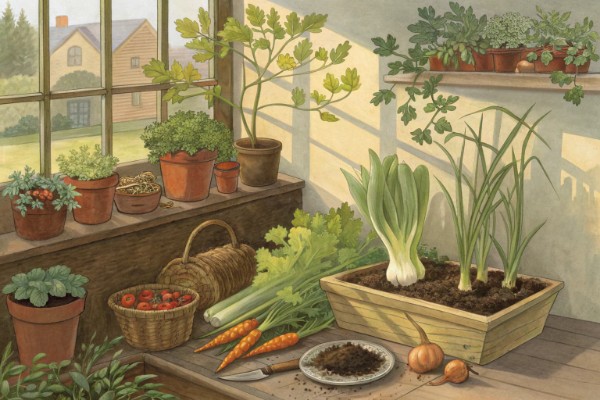Fertilizer Types: A Beginner's Guide to Plant Nutrition

Fertilizer Types
A quick grasp on fertilizer types helps your plants thrive with less guesswork and effort. Organic fertilizers enrich soil gradually, while synthetic fertilizers deliver nutrients quickly and precisely. Understanding fertilizer types steers you clear of common mistakes and sets your garden up for vigorous growth—keep reading and you'll grow confident in nourishing healthy plants.
Understanding Fertilizer Types: What Your Plants Crave
Last spring, while checking on my tomato seedlings, I realized something was off. Leaves yellowed suspiciously, veins starkly green—a classic nutrient deficiency.
I remember thinking, "It's probably time to revisit fertilizer types and balance my soil." Choosing the right fertilizer breathed new life into my garden, and the tomatoes thrived like never before.
Organic vs. Synthetic Fertilizers: What's the Difference?
Let's clarify first: organic fertilizers originate from natural sources—things like composted manure, bone meal, or worm castings. They feed the soil's inhabitants, whose waste products then nourish plant roots.
Organic options enhance soil structure slowly and steadily over months or even years.
On the other hand, synthetic fertilizers contain chemically formulated nutrients like nitrogen (N), phosphorus (P), and potassium (K). These work quickly, letting struggling plants rebound spectacularly in just days or weeks.
"Approximately half of gardeners today use organic fertilizers exclusively, citing improved soil health and sustainability." —Gardeners' Annual Report 2022
Personally, I favor organics for long-term soil vitality but occasionally supplement with synthetics when quick action is necessary.
N-P-K Ratios Made Easy
Ever stared bewildered at those mysterious numbers like 5-10-10 printed on fertilizer bags? Stay with me here: these numbers simply represent the percentage of nitrogen (N), phosphorus (P), and potassium (K) contained within, always in that order.
- Nitrogen (N) boosts lush leaf growth—think spinach and lettuce craving this.
- Phosphorus (P) supports strong root systems, flowers, and fruit production—ideal for carrots, roses, and tomatoes.
- Potassium (K) promotes overall vigor, helping plants resist drought, diseases, and temperature swings.
Picking the correct ratio is straightforward once you know your plant's needs.
Common Organic Fertilizers Worth Trying
Over the years, I've experimented extensively, testing what works and discarding what doesn't. These three organic fertilizers consistently impress me:
- Compost: Rich in microbes and fantastic at improving soil texture. Sprinkle it generously any time of year.
- Fish Emulsion: Smelly but incredibly effective. Dilute according to package instructions and apply monthly during growing season.
- Blood and Bone Meal: Potent providers of nitrogen and phosphorus respectively. Use sparingly every 8 weeks.
When to Use Synthetic Fertilizers
Although I lean toward organic classics, certain situations demand synthetic power. For example, last July's scorching heatwave (95°F or 35°C) left my garden wilted and pale—the plants urgently needed an energy boost.
That's when I reached for water-soluble synthetic fertilizer, reviving tired vegetables within days. Just remember, follow dosage instructions carefully, as too much synthetic fertilizer can burn plant roots or leach into groundwater.
Slow-release Fertilizers: Convenience Meets Efficiency
Imagine setting fertilizer once and forgetting about it for months. Enter slow-release fertilizers, granules coated with materials that slowly dissolve, evenly releasing nutrients into the soil as plants require them.
I apply slow-release granules to container plants and ornamental beds, simplifying care while ensuring consistent nutrition all season long.
Soil Testing: The Foundation of Fertilizer Selection
Before spreading any fertilizer, understand your soil. A simple soil test kit reveals which nutrients your garden actually lacks, preventing waste and avoiding imbalance.
"Overapplication of fertilizers leads to soil degradation and water pollution. Test first—fertilize thoughtfully!" —Sustainable Gardens Initiative
After testing, you'll confidently select the correct fertilizer types instead of guessing blindly. Trust me, your plants (and wallet) will thank you.
Cheatsheet: Instantly Decode Fertilizer Choices
🌱 Main Fertilizer Types
- Granular
Slow-release; feeds 1–3 months; ideal for steady growth - Water-Soluble
Quick boost; mix with water; rapid green-up visible in 3–7 days - Organic
Compost, manure, seaweed; improves soil health; safer for pets, pollinators - Synthetic
Precise nutrient ratio (N-P-K); faster results; use carefully
🧪 Key Nutrients & Functions
- Nitrogen (N) — boosts leaves, stems, lush growth
- Phosphorus (P) — powers roots, fruits, blooms
- Potassium (K) — strengthens cells, drought resistance
- Micronutrients — iron, magnesium, calcium: support health
⚡️ When & How to Apply
- Apply granular at planting; reapply every 4–6 weeks
- Apply water-soluble every 2 weeks (growing season)
- Stop fertilizing 6 weeks before frost (USDA zones 4–7) or at soil temp below 50°F (10°C)
🌾 Organic vs. Synthetic: Compare
- Organic: feeds soil; reduces runoff; supports long-term self-sufficiency
- Synthetic: rapid results; risk of buildup, root burn
- 85% of home gardeners start with organics for edible crops
🛠️ Tools and Products You’ll Need
- Gloves
- Measuring scoop/cup
- Watering can or hose (for liquids)
- Dry brush (to sweep spills)
- Fertilizer spreader (for lawns or big beds)
- pH test kit (for optimal uptake)
🚀 Quick Steps to Feed Your Plants
- Test soil: Use kit; adjust pH if needed (6.0–7.0 majority)
- Choose type: Select based on plant need and goal
- Measure accurately: Follow product label; avoid overdosing
- Apply evenly: Broadcast granules or dissolve liquid; keep 2–4 in (5–10 cm) from stems
- Water well: Soak roots after application to activate nutrients
- Monitor: Inspect for yellowing, slow growth, or burn; adjust as needed
Frequently Asked Questions about Fertilizer Types
How often should plants receive fertilizer?
The frequency of fertilizer application depends on plant variety and fertilizer type. Liquid fertilizers typically require application every two to four weeks, while slow-release granular fertilizers usually feed plants for three to six months. Always follow the specific product instructions and adjust based on plant health.
Is organic fertilizer superior to synthetic fertilizer?
Organic fertilizers contain natural matter, enriching soil health and improving long-term fertility. In contrast, synthetic fertilizers immediately supply nutrients but do not enhance soil structure. The best choice depends on immediate goals, plant needs, and personal gardening preferences.
Can over-fertilization harm plants?
Yes, excess fertilizer can damage plant roots, stunt growth, and cause leaf burn. Always adhere to recommended application rates and schedules to ensure balanced nutrition and optimal growth.
Are liquid fertilizers more effective than granular fertilizers?
Liquid fertilizers offer rapid nutrient absorption through roots and leaves, beneficial for quick plant revival. Conversely, granular fertilizers deliver sustained nutrition and require fewer applications. Plant requirements and gardener convenience determine suitability.
Should fertilizer application change seasonally?
Seasonal adjustments ensure plants receive appropriate nutrition. In spring and early summer, apply fertilizers that promote growth. Transition to fertilizers higher in phosphorus and potassium during late summer and autumn to encourage flowering, fruiting, and root strength. Fertilizer typically pauses in winter except for indoor plants or year-round gardening climates.
Does fertilizer have an expiration date?
Most fertilizers retain effectiveness for several years if stored correctly in a cool, dry, and sheltered location. Organic fertilizers have a shorter lifespan, typically one to three years, while synthetic forms can last up to five years. Regularly check for proper storage conditions.
What precautions are necessary when handling fertilizer?
Always wear protective gloves and clothes when applying fertilizer to avoid skin irritation. Avoid inhaling dust, handle carefully around pets and children, and store fertilizer securely to prevent accidental ingestion or environmental contamination. Rinse tools thoroughly following use to avoid cross-contamination.
Choosing the right fertilizer types isn’t about chasing trends—it’s about reading your soil, knowing your plants, and feeding them exactly what they need. Organic options like compost or even citrus peels bring more than nutrients—they build life in the soil. Synthetic fertilizers can offer a quick fix, but they demand care and precision. There’s no single answer, just the one that fits your space, your crops, and your own philosophy. If you’re growing food, experiment with household fertilizers or test out new blends. The best gardeners pay attention, adjust, and respect the balance. In the end, understanding fertilizer types means feeding your plants—and your soil—the way you’d feed a friend: thoughtfully, honestly, and with some patience.
Find out which plants will thrive in your garden!
Answer a few fun questions and get custom plant recommendations perfect for your space. Let’s grow something amazing together!

start your season


